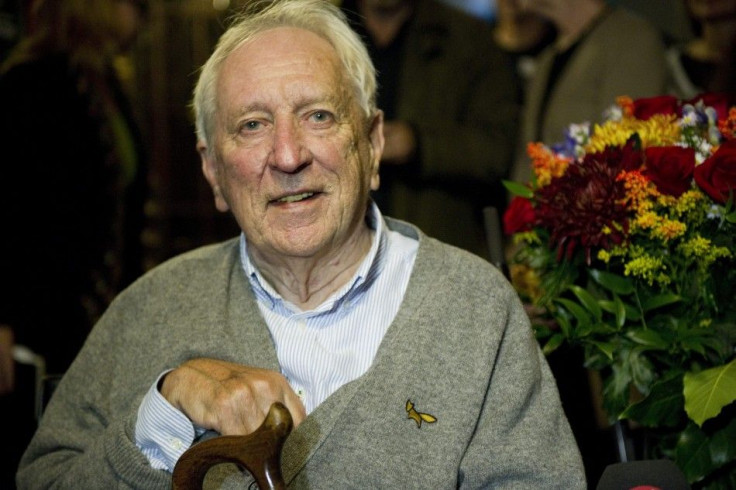Sweden's Transtromer Wins Nobel Literature Prize

Sweden's greatest living poet, Tomas Transtromer, won the Nobel prize for literature on Thursday, more than 20 years after a stroke severely limited his speech and movement, but not the power of his writing.
The 80-year-old was honored for a canon of poetry which is infused with metaphors and images from the nature of his native land and which explores wide themes like mortality, reality, solitude and redemption.
News a Swede had won literature's most prestigious award, worth 10 million Swedish crowns ($1.45 million), for the first time since 1974 was warmly welcomed by a nation whose cultural accomplishments are rarely recognized on the world stage beyond the popularity of crime writers Henning Mankel and Stieg Larsson, or the music of 1970s band Abba.
At a brief news conference, Transtromer was flanked by his wife Monica who answered many of the questions directly.
The poet is partly paralyzed down his right side and has difficulty speaking, but he managed to describe his feeling at winning the award with the words: Very good, very good.
His wife told reporters: We were very, very surprised. We have not realized that this is real yet. Like any other Swedish literature lover and pensioner, we were sitting in front of our TV to see who was going to get the prize.
We were hoping that a poet would get the prize. That he got it was a big bonus.
Transtromer had been a perennial favorite to win the prize and has been nominated every year since 1993.
Transtromer's other big love is music, and he still plays the piano with his left hand. This is reflected in some of his poems, such as one called Allegro.
After a black day, I play Haydn,
and feel a little warmth in my hands.
The keys are ready. Kind hammers fall.
The sound is spirited, green, and full of silence.
The sound says that freedom exists
and someone pays no tax to Caesar.
WORLD RENOWN
Other names tipped by British bookmaker Ladbrokes in the run-up to the announcement were Syrian poet Adonis, Japanese novelist Haruki Murakami and even U.S. singer Bob Dylan.
The last time a Swede picked up the Nobel literature prize was in 1974 when it was shared by Eyvind Johnson and Harry Martinson, a controversial choice because they were both members of the academy.
Transtromer makes it four European winners in the last five years, while Americans have been overlooked since Toni Morrison in 1993, leading to criticism that the prize is Eurocentric.
Peter Englund, permanent secretary at the Swedish Academy, described Transtromer as one of the foremost poets in the world today.
Loud cheers among the gathered press greeted the announcement, and dozens of messages from around the world were posted on the Nobel organizers' website.
Swedish Prime Minister Fredrik Reinfeldt was one of the first to congratulate Transtromer: I know that many people have hoped for this for a long time, he said in a statement.
Henrik Lundin, who works at the Akademibokhandeln book shop in Stockholm, said he was delighted with the award.
I never thought this would happen, he said. I thought the Academy wouldn't dare give the prize to a Swede for the next 100 years. It's great that such a popular person got the prize - it's something everyone (in Sweden) knows about.
Neil Astley, founding editor at Transtromer's British publishers, Bloodaxe Books, called his work visionary.
It's about nature, it's about people, it's about the forces of nature, man and nature, freedom and control, so many elements are in his work.
Transtromer was born in Stockholm on April 15, 1931 to a schoolteacher mother and a journalist father.
His 1954 work, 17 poems, was one of the most widely acclaimed literary debuts of the decade and, after gaining a degree in psychology he divided his time between writing and working as a psychologist.
As well as being popular in Sweden, his collections have been translated into more than 60 languages.
American poet Robert Hass once said of Transtromer: Tomas's poetry gave a piercing sense of what it's like to be an ordinary person going about their life at the moment when that life goes off the tracks.
($1 = 6.916 Swedish Crowns)
© Copyright Thomson Reuters 2024. All rights reserved.











